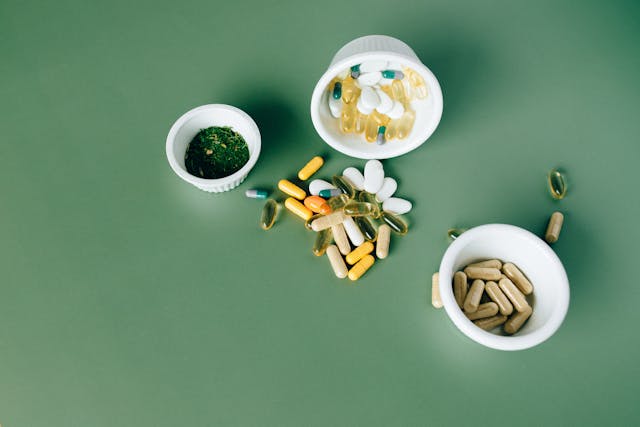A balanced diet must include protein because it is essential for immune system function, hormone balance, muscle repair, and the maintenance of healthy skin, hair, and nails. High-protein diets have become more and more popular as fitness culture and weight-loss trends have grown. Although protein is necessary, eating too much of it can have unanticipated negative effects and cause long-term health issues.
The symptoms of too much protein, its biological effects, and the dangers of consuming large amounts of protein on a regular basis—including the possibility of a connection to severe illnesses—are all covered in this article.
How Much Protein Is Too Much?
For the average adult, the recommended daily intake of protein is 0.8 grams per kilogram of body weight. Accordingly, an individual weighing 70 kg (154 pounds) ought to strive for approximately 56 grams of protein daily. Athletes or people who lead physically demanding lives, however, might need up to 2.2 grams per kilogram.
What occurs, though, if you routinely surpass that cutoff?
Daily Protein Intake Recommendations
| Population Group | Protein (g/kg of body weight) |
|---|---|
| Sedentary adults | 0.8 |
| Active adults | 1.2 – 1.6 |
| Athletes | 1.6 – 2.2 |
| Bodybuilders (cutting) | 2.2+ |
Symptoms of Too Much Protein
When protein intake far exceeds what the body can use, various symptoms can emerge. These can be short-term or progress to more serious health effects if the habit persists.
Common Symptoms:
-
Dehydration
High protein levels increase nitrogen in the bloodstream, which the kidneys flush out via urine—potentially leading to dehydration. -
Digestive Issues
Low fiber intake, often associated with high-protein, low-carb diets, can lead to constipation, bloating, or diarrhea. -
Bad Breath (Ketosis-related)
Diets extremely high in protein and low in carbohydrates may cause ketosis, leading to a chemical odor on the breath. -
Fatigue and Irritability
Lack of adequate carbs—your body’s main energy source—can result in low energy, poor concentration, and mood swings. -
Nausea or Loss of Appetite
Overloading the digestive system can make eating unpleasant.
Side Effects of High Protein Intake
Beyond temporary discomfort, excess protein consumption may lead to broader health concerns.
| Side Effect | Explanation |
|---|---|
| Kidney strain | Increased urea and nitrogen waste can burden kidney function, especially in those with underlying conditions. |
| Calcium loss | High protein intake can increase calcium excretion in urine, potentially affecting bone density. |
| Weight gain | Protein-rich diets can still be high in calories. If intake exceeds needs, weight gain can occur. |
| Liver stress | Long-term excessive intake can strain the liver’s ability to metabolize protein. |
| Nutritional imbalance | Focus on protein may reduce intake of vital nutrients from other food groups. |
What Happens If You Feed the Body Too Much Protein?
Let’s break this down into short-term and long-term effects.
Short-Term Effects:
-
Increased thirst and urination
-
Constipation or gastrointestinal discomfort
-
Temporary weight gain from increased food volume
Long-Term Risks:
-
Increased risk of kidney stones
-
Loss of bone mineral density
-
Higher cholesterol levels (if high-protein diet includes saturated fats)
-
Strain on liver and kidneys
-
Potential cancer risk (from certain types of protein sources)
Protein and Cancer: Is There a Link?
Recent studies have examined a possible connection between excessive protein—especially from animal sources—and the development of cancer. Some findings suggest that high consumption of red and processed meats may be linked to a greater risk of:
-
Breast cancer
-
Prostate cancer
The risk factors stem from:
-
High-temperature cooking methods (grilling, frying) that create carcinogens
-
Low fiber intake when plant foods are limited
-
Excess heme iron and saturated fats in some animal proteins
It’s important to note that plant-based proteins do not carry the same risks and may even offer protective benefits against cancer due to their fiber and antioxidant content.
Can You Eat Too Much Plant-Based Protein?
Yes, but it’s less common. While plant-based protein sources are healthier overall, overconsumption from powders, bars, and supplements may still lead to:
-
Digestive upset (especially from excess legumes or soy)
-
Caloric surplus
-
Reduced variety in nutrient intake
Whole plant foods naturally regulate protein intake due to their fiber and volume.
Who Should Be Most Cautious?
Some groups need to be especially mindful of excessive protein consumption:
-
Individuals with kidney disease: Already limited in their ability to process nitrogen waste
-
Older adults with compromised kidney function
-
People prone to kidney stones: Especially those on high animal protein diets
-
People with liver disorders: Excess protein can be taxing for liver metabolism
FAQ: Too Much Protein
Q1: What are early signs that I’m eating too much protein?
A: Common signs include bad breath, bloating, constipation, dehydration, and fatigue.
Q2: Can eating too much protein damage my kidneys?
A: In healthy individuals, kidneys can usually handle high protein for a while. However, in those with pre-existing kidney issues, high protein can accelerate damage.
Q3: Can a high-protein diet lead to cancer?
A: Diets high in red and processed meats may increase cancer risk, especially when low in fiber and antioxidants.
Q4: Can I gain weight on a high-protein diet?
A: Yes, if total calories exceed your needs, even protein will be stored as fat.
Q5: Is it better to get protein from plants or animals?
A: A mix is ideal. Plant-based proteins tend to come with fiber and fewer health risks, while lean animal proteins provide a complete amino acid profile.
Q6: How can I balance my protein intake?
A: Ensure you’re also eating sufficient carbohydrates, healthy fats, fruits, vegetables, and whole grains.
Key Takeaways
-
Too much protein can cause digestive issues, dehydration, kidney strain, and long-term health risks.
-
Overconsumption is especially risky when protein comes from red or processed meat.
-
Symptoms of excess protein include fatigue, bad breath, bloating, and calcium loss.
-
The best approach is a balanced diet with moderate protein, whole foods, and diverse nutrient sources.
-
Plant-based proteins are generally safer and come with added health benefits.
-
Listening to your body and adjusting intake according to activity level and health status is essential for long-term well-being.


